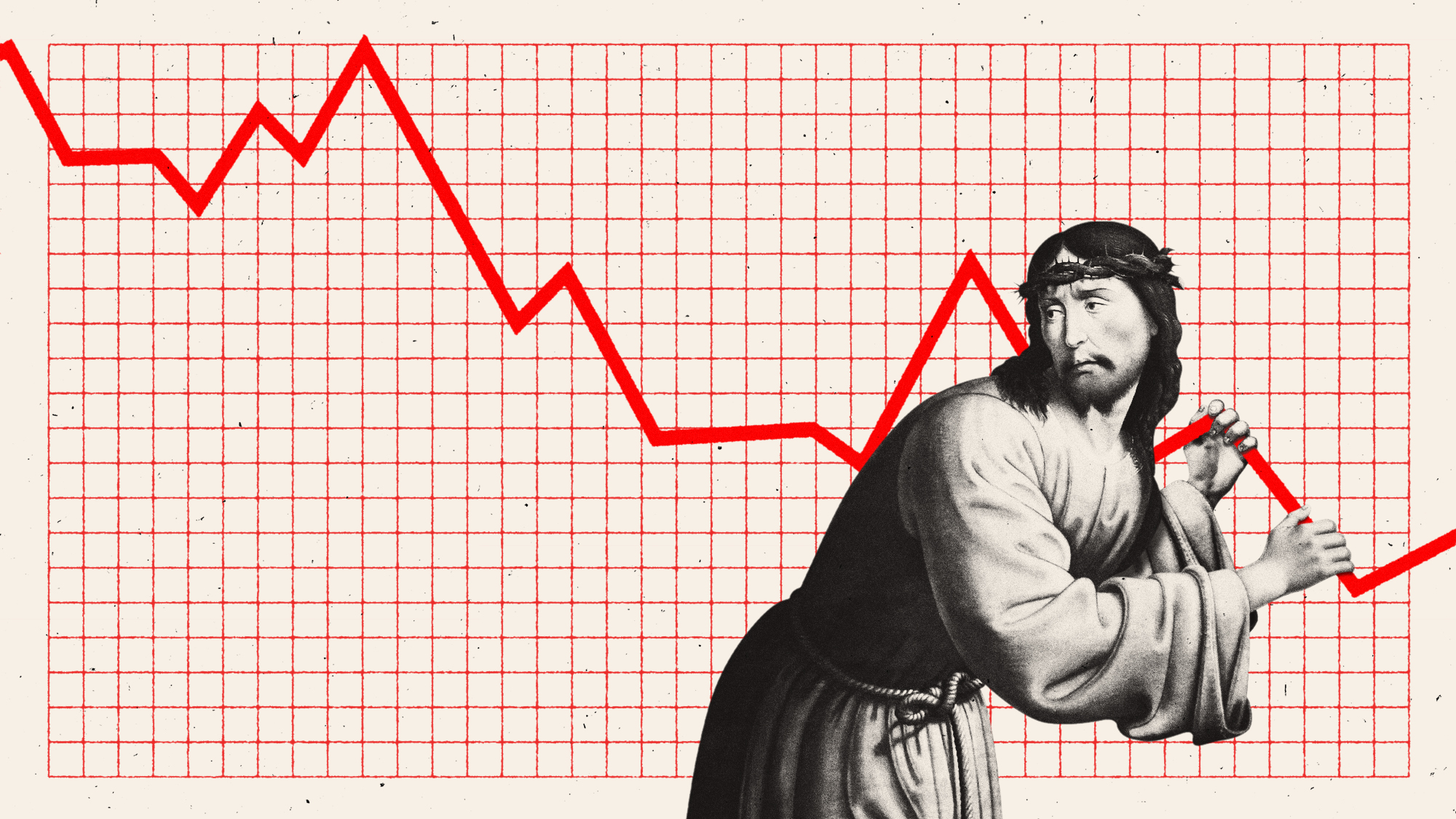5 reasons we shouldn't over-regulate America's new gig economy
Part of our series on the future of small business


My first job out of college was also my most traditional: I was an office worker with about 60 friendly coworkers, employer-provided insurance, paid time off, and direct deposit.
To many, that surely sounds like an ideal situation — super stable, super safe. But I found it stifling, and wanted out after less than a year.
Today, I'm in grad school and get all my income freelancing. I have not one source of income, but five, and I work about 25 hours per week to make a little bit more than I earned for 40 hours of work at my last full-time position. On any given day, I complete projects for at least three jobs (including writing for this website), plus a smattering of schoolwork, housework, or whatever else I feel like doing. I never have to go to an office. I'm writing this column in my ratty old running clothes on my couch.
The Week
Escape your echo chamber. Get the facts behind the news, plus analysis from multiple perspectives.

Sign up for The Week's Free Newsletters
From our morning news briefing to a weekly Good News Newsletter, get the best of The Week delivered directly to your inbox.
From our morning news briefing to a weekly Good News Newsletter, get the best of The Week delivered directly to your inbox.
Yes, I'm one of the millions of Americans who make their living in the new "gig economy." It's busy — very busy — but for me, as for 85 percent of my fellow freelancers, the freedom, flexibility, and higher income this lifestyle provides all but ensures that I'll never want to go back to more traditional employment.
Unless, of course, I get helicopter parented back into it.
I'm not talking about my actual parents — my mom is totally on board with my job situation — but about increasing calls for a new regulatory scheme to make freelancing more like being an employee.
The most high-profile efforts in this regard are connected to ride-sharing services like Uber, as the National Employment Law Project (NELP) is pushing Congress to classify on-demand drivers as employees. This cause has been broadly championed by Democratic presidential frontrunner Hillary Clinton, making the 1099 tax form (the document contract workers use instead of the W-2) an unlikely issue in the 2016 election.
A free daily email with the biggest news stories of the day – and the best features from TheWeek.com
Though the road to such regulatory measures may be paved with good intentions, in practice these proposals are just as overbearing, stress-inducing, and irrational as the helicopter parenting we've all come to bemoan in recent years. Shoehorning this new economy — which now provides as many as 60 percent of American workers with a quarter or more of their income — into the old economy's footprint is a regressive move for a number of reasons.
1. Diversified income can provide security as much as insecurity. A common worry about freelancing is the supposed uncertainty it brings. "The problem is workers don't know when they'll earn" money, argues former Labor Secretary Robert Reich in a gig economy critique that is representative of the genre. "A downturn in demand, or sudden change in consumer needs, or a personal injury or sickness, can make it impossible to pay the bills." I doubt any freelancer would deny this kind of work comes with risks. But the more diversified one's earning streams, the more these fears are unfounded. For instance, with five income streams, it would be very difficult for me to lose more than a third of my income at once. Full-time workers can't match that job security.
2. One-size-fits-all regulations won't work. Reich suggests that any source of 50 percent or more of a gig worker's income should be obliged to treat him or her as an employee. But many freelancers don't have any single source of income that large. Similarly, while a minority of Uber drivers drive as their only source of income, others devote just a few hours to driving each week while also working elsewhere — maybe even in traditional employment situations. In hours, number of contracts, schedule, and more, a defining feature of the gig economy is the diversity of experiences it provides, which means a host of unintended consequences are guaranteed to attend large-scale regulatory efforts.
3. The digital era has made most employer benefits obsolete. Whether we have a 50+ percent income source or not, many 1099 workers find traditional employee perks more a burden than a benefit. Health insurance can often be found cheaper in the individual marketplace than through employers, and higher wages — Uber drivers, for example, typically make double what a taxi driver earns — can make up for lack of officially scheduled (and therefore limited) vacation time. Easy online access to comparison shopping for insurance policies and personal finance apps that streamline budgeting mean there's no real need to tie benefits to full-time employment anymore.
4. Gig workers — especially millennials — don't have traditional job priorities. "A lot of freelancers are saying: I want to spend time with my family, volunteer for political organizations or follow my interests, and I don't have to knock out 40 hours a week just for that," explains Sara Horowitz, founder of the Freelancer's Union. While it's easy to focus on the employer-provided extras freelancing might lack, it's important not to forget the less visible advantages that can't be measured in dollars.
5. Adults don't need the government to be our mommy. To paraphrase the sage words of freelance musician Miley Cyrus: It's my job; I can work how I want to. Only 10 percent of the Americans who consider themselves free agents in the gig economy say they got there because of economic necessity. In other words, 90 percent of us left or avoided traditional employment because we didn't want to be there. We're here because we understand the risks — and we've decided they're worth it. We don't need Washington helicoptering us back to the office.
Bonnie Kristian was a deputy editor and acting editor-in-chief of TheWeek.com. She is a columnist at Christianity Today and author of Untrustworthy: The Knowledge Crisis Breaking Our Brains, Polluting Our Politics, and Corrupting Christian Community (forthcoming 2022) and A Flexible Faith: Rethinking What It Means to Follow Jesus Today (2018). Her writing has also appeared at Time Magazine, CNN, USA Today, Newsweek, the Los Angeles Times, and The American Conservative, among other outlets.
-
 The UK’s supposed Christian revival
The UK’s supposed Christian revivalThe Explainer Research has shown that claims of increased church attendance, particularly among young people, ‘may be misleading’
-
 How long can Keir Starmer last as Labour leader?
How long can Keir Starmer last as Labour leader?Today's Big Question Pathway to a coup ‘still unclear’ even as potential challengers begin manoeuvring into position
-
 Child-free train carriages: has push for adults-only spaces gone too far?
Child-free train carriages: has push for adults-only spaces gone too far?Talking Point Under-12s ban on premium commuter train carriages in France sparks backlash across the political divide
